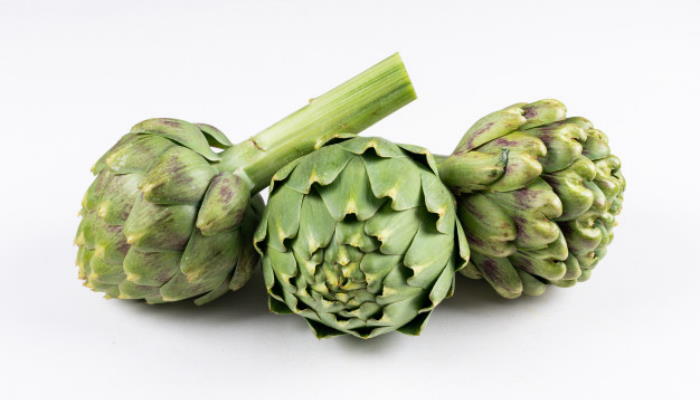
Cibo foto creata da 8photo - it.freepik.com
Artichoke ( Cynara scolymus L. ) is a plant of the Asteraceae family cultivated mainly in Italy and other Mediterranean countries for food use and, secondarily, medicinal.
Artichoke Nutritional Values
(100g of product): Energy: 22 kcal / 92 Kj
Carbohydrates: 2.5g
Protein: 2.7g
Fat: 0.2g
Total: 5.5g
Water: about 90g
As you can see from the nutritional values, Artichokes have very few calories, are mainly made up of water and plant fibers and are therefore great for a good functioning of the intestine and to reduce the accumulation of fats.
These vegetables are a true source of active ingredients: they are rich in potassium (as much as 370 mg every 100g of product), calcium, phosphore, magnesium, iron and copper. In addition to these precious mineral salts also contain important vitamins including:
- Vitamin A and Beta-carotene: for good vision functioning and with important antioxidant function, anti-cancer action, protective action of mucous
- Vitamins of the B group (particularly B1 and B3): important for the body's energy metabolism
- Vitamin C: which increases immune defenses, reduces stress and fatigue, essential for the formation of collagen and involved in different mechanisms (antioxidants, osteoporosis prevention, repair of epithelial and muscular tissues..)
- Vitamin K: involved in the mechanisms of regulation of blood clotting and also useful for the prevention of osteoporosis.
Thanks to the large amount of water, mineral salts and particular molecules such as flavonoids and cinarine, artichokes perform an important diuretic and cleansing action, especially at the liver level.
The Cinarine gives the artichoke its typical bitter taste. It is a polyphenol that derives from coffee acid that stimulates diuresis and bile secretion with beneficial effects on the entire digestive system (purification of the liver and elimination of toxins; stimulation of diuresis; improving digestive processes are some examples). All these molecules also act as important antioxidants and therefore protect the body from the action of free radicals and also promote the reduction of LDL cholesterol in the circle.
Use and Consume Artichokes
Artichokes (in particular extract) are widely used in the field of natural medicine and phytotherapy, In addition to cooking:
Their properties are mainly exploited for those with liver and/or gallbladder problems or in cases of nausea and food poisoning. Artichoke leaf extract can also be very useful in dyspepsia and digestive problems (thanks to the positive effect on bile secretion).
Artichoke extract also has a fundamental antitoxic action especially against alcohol (which accumulates in the liver) in addition to hepatoprotective function: the presence of alcohol both in the liver and in the circulation gradually decreases thanks to the diuretic effect. Researchers have also found regenerative properties of the liver parenchyma.
Artichoke is a real protagonist also in the field of cosmetics and not only in the kitchen and in phytotherapy,: the "burdock" quality of the artichoke has a purifying effect especially as regards the skin, especially the very oily one, but also in the case of acne and boils in general.
Artichokes Recipes
Neapolitan Artichokes RecipeArtichokes with Baked Potatoes
Stuffed Artichokes
Curated by
Dott.ssa Patalano Myriam Biologist Nutritionist
Ischia Nutrizione Patalano
